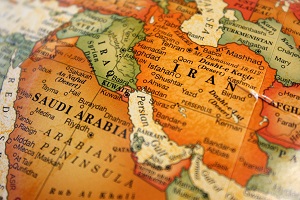Neelam Rahim | neelam@radioislam.co.za
2-minute read
25 March 2023 | 14:20 CAT

Image: CNBC
The deal could have wide-ranging consequences, but building on it, analysts say, will prove the main challenge.
Iran and Saudi Arabia have agreed to re-establish diplomatic relations in a China-brokered deal that could have wide-ranging consequences. However, building on it, analysts say, will prove the main challenge.
The agreement signed in Beijing on Friday said the two countries’ foreign ministers would meet to discuss diplomatic missions within two months, marking the end of a seven-year rift.
The deal was generally welcomed in Iran, with senior officials praising it as a step towards reducing tensions and bolstering regional security. Conservative media outlets mainly focused on how the deal signalled a “defeat” for the United States and Israel.
Speaking to Radio Islam International, a Fellow at SEPAD, focusing on Saudi Foreign policy towards Israel and MENA international relations, Aziz Alghashian, said the economic factor should be considered as the glue to the longevity of the deal.
According to Alghasian, the deal may be suitable for many players in the region, with less competition in other states like Iraq and Lebanon, helping the identity of the states to expand.
Meanwhile, Israel is very disappointed with the deal because their perception of Saudi Arabia was to expand their security borders.







0 Comments